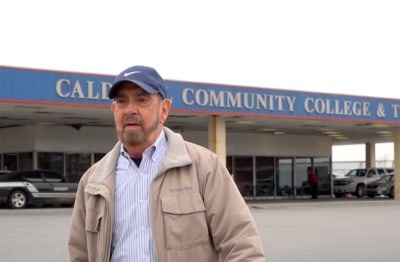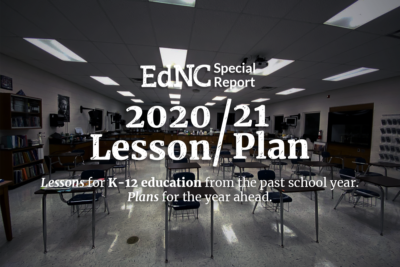
“We do not want to go back to normal. We want to embrace this new normal and new routine.”
Anthony Jackson, superintendent of Vance County Schools, during “Pathways To and Through College”
COVID-19 has radically changed the lives of our students and added many more hurdles on the road to their educational goals. To help address those hurdles, EdNC hosted a virtual gathering May 20: Pathways To and Through College.
The question our panelists tried to answer: As we recover from the pandemic, how can we best help students meet the new challenges and navigate the road to college and completion?
We discussed student success — with an emphasis on recruitment, retention, and remediation. Tim Renick, the leader of Georgia State University’s new National Institute for Student Success, said Georgia State will target three groups of students for attention this fall: traditional first-year students who went through 16 months of atypical experiences as they finished high school, students who stopped taking college classes last fall, and students who just finished their first year at Georgia State but have never stepped foot on campus. Renick recommended that other institutions of higher learning do the same.
All of the panelists noted the importance of paying attention to early alerts when students are beginning to fall behind. Lina Bankert, director of the Reimagining the Road to Graduation project, said high school math scores, in particular, are one of the “red alerts.”
Superintendent Anthony Jackson, who is moving this year from Vance County Schools to Chatham County Schools, said that when adults consider the education journey for students during COVID-19, they must show grace. Students often are walking away from high school or postsecondary institutions because of family circumstances, he stressed, rather than a lack of desire to complete their education.
He credited a number of strategies for Vance County’s success in retaining students, including deputizing everyone in the school system to “go and find students” while also deputizing churches and businesses to serve as hubs for internet access for students and families.
Watch the video below for the full virtual gathering and the key recommendations for educational institutions moving forward after the pandemic:
Vance-Granville Community College president Rachel Desmarais helped conclude the event by noting that “normal” wasn’t working even before COVID-19 for many students, so “returning to normal” wouldn’t work for everyone.
Jackson brought us to a close by urging, “Don’t let social distancing become social isolation.” Education leaders should not cut themselves off from good ideas, he said, and should use pandemic recovery as an opportunity for all education systems to be better, stronger, and wiser.
Additional resources
We encourage you to spend time with the following resources:
This public US university has seen grades soar despite Covid. What’s it doing right?
Video | How Anthony Jackson became the Conductor
‘It’s not enough to get students in the door’ — Reimagining the role of community colleges
We thank our guest experts for participating:
Rachel Desmarais, president, Vance-Granville Community College
Anthony Jackson, superintendent, Vance County Schools (Jackson was recently named the next superintendent of Chatham County Schools)
Tim Renick, executive director of Georgia State University’s new National Institute for Student Success
Lina Bankert, partner, Bellwether Education Partners; director of the Reimagining the Road to Graduation project





